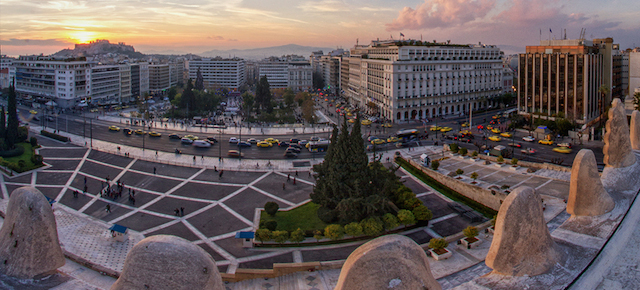Ever since he left his post as the ban-happy mayor of New York City, Michael Bloomberg has been very busy taking his urban revitalisation show on the road. Today, his philanthropy announced the winners of his annual Mayors Challenge, with five bright ideas for cities addressing issues from ageing to civic engagement.
After focusing on US cities last year, this time the challenge addressed European cities. One city (Barcelona) will win 5 million Euros to implement their idea, while the other four get one million Euros each. The criteria for winning is a solution that could be easily replicated in any city. These five solutions definitely address problems that could happen anywhere.
A “trust network” for ageing residents in Barcelona
Like many cities, Barcelona is getting old: One in five residents is over 65, a number that will increase to one in four by 2040. While some residents will need hospital care, others just need someone to check in on them from time to time, but don’t have an establishes support network of friends, family or neighbours. Barcelona will attempt the first citywide collaborative care system for each elderly resident, employing digital and low-tech strategies that will make sure every citizen over 65 has someone watching over them.
An online platform to encourage civic engagement in Athens
The crisis that struck Greece has not only devastated Athens’ urban infrastructure and economy, it’s also disenfranchised residents, who no longer believe that their ideas are being heard and implemented.
Synathina is a new online platform which will give Athenians a voice for change in their city, allowing local groups to work collaboratively with local government to devise solutions for their communities.
A way for the government to share unused private resources in Kirklees
As in many places, the UK city of Kirklees has been struck by massive budget cuts which are causing the government to end many programs and services. A new program will allow private citizens and businesses to offer up their unused resources — anything from vehicles to skills — to trade or barter, in a sort of time-banking system for the entire city.
A citywide plan to produce biochar in Stockholm
Stockholm is taking on an ambitious plan to recycle its green waste into “biochar,” an organic material similar to charcoal that can act as a kind of power fertiliser and water purifier to help cleanse cities. Citizens can bring green waste to centralized areas for recycling and take the biochar home with them.
An urban information system for the visually impaired in Warsaw
This will be a great one to watch: Warsaw is going to turn its city into a sensor-studded wonderland that will allow its residents to interact and engage with the city through their mobile phones. Besides the obvious benefit to visitors, the system will allow Warsaw to become one of the best cities for the visually impaired, who can move throughout the city unaided and with more confidence.
Picture: Athens, Bloomberg Philanthropies
